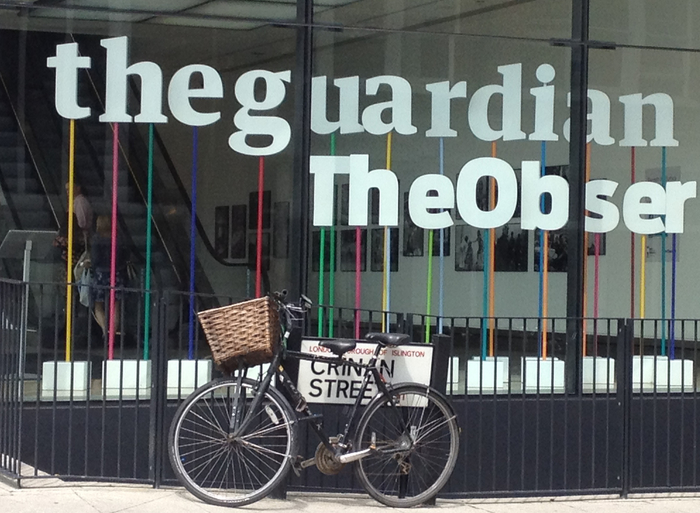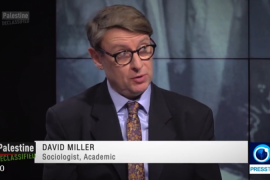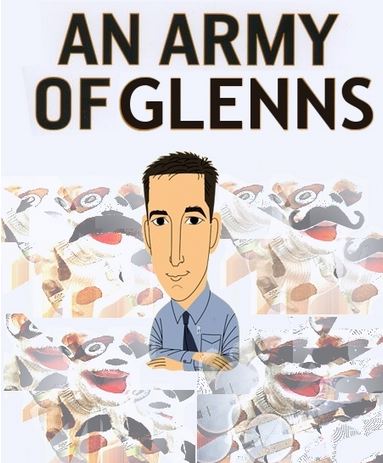Though unlike the Independent, the Guardian’s headline in their report on the death of Al Jazeera journalist Shireen Abu Akleh yesterday during IDF clashes with Palestinian gunmen in Jenin wasn’t problematic, the article itself is thinly veiled pro-Palestinian propaganda.
The piece (“Al Jazeera accuses Israeli forces of killing journalist in West Bank”, May 11) by Jerusalem correspondent Bethan McKernan begins by airbrushing the fact that Jenin is a hotbed of terror. McKernan describes it merely as “a stronghold of the Palestinian Fatah movement and historical flashpoint in the Israeli-Palestinian conflict”, while omitting that it’s a Palestinian Islamic Jihad (PIJ) ‘stronghold’. In fact, PIJ posted a video yesterday showing its members firing at IDF forces. Recall also that a Palestinian man from a village near Jenin shot five people dead in Tel Aviv in March, while last week two Palestinians from Jenin killed three in an attack in Elad.
McKernan then uncritically repeats Al Jazeera’s unsubstantiated allegation that Israel “deliberately killed” the journalist, whilst omitting that the outlet is well known as a “mouthpiece for the Qatari monarchy” and a “purveyor of Islamist extremism” whose claims can’t be accepted at face value. A couple paragraphs down, McKernan uncritically quotes a ‘journalist’ from Al-Quds Network suggesting that the killing was an Israeli “assassination”, without reminding readers that Al-Quds is associated with Hamas.
Later, McKernan writes that Israel’s foreign minister, Yair Lapid, said Israel had “offered the Palestinians a joint pathological investigation”, but fails to note that Palestinians reportedly rejected the offer.
The Guardian journalist also omits this statement by a Palestinian forensic doctor from the PA Health Ministry, acknowledging that he couldn’t determine who was to blame.
WATCH: Palestinian forensic doctor, Rayan Al-Ali, states it cannot be determined who is responsible for her death before a full investigation.
Via @OhadZemet
— Emily Schrader – אמילי שריידר (@emilykschrader) May 12, 2022
Further, today Palestinian officials made it clear that they wouldn’t be handing over the bullet that killed Abu Akleh, the key piece of evidence that could have shown who killed her.
McKernan then attempts to frame Abu Akleh’s killing in the context of what she suggests is an Israeli pattern of targeting journalists:
The Palestinian film-maker Yaser Murtaja was the last journalist to be killed covering the conflict, shot by Israeli snipers during protests on the Gaza Strip frontier in 2018. Another journalist, Yousef Abu Hussein, was killed when his home was hit by an airstrike during the bombing of Gaza last May.
Regarding Yaser Murtaja, CAMERA has posted about the hard evidence that he wasn’t a mere “film maker”, but was on Hamas’s payroll, held the rank of captain, had a ‘prior association with the military wing (Izzadin Kassam Brigades) and was buried with a Hamas flag. And, he wasn’t killed during “protests”, but during violent Hamas-organised riots known as the Great Return March.
Also, Yousef Abu Hussein, wasn’t a regular “journalist”. He worked for Hamas’ Al-Aqsa Voice, and was thus a member of the propaganda wing of a proscribed terror organization. (Al Aqsa Voice has praised Palestinian terrorists for murdering civilians including Rina Schnerb, Kim Levengrund-Yehezkel and Ziv Hajbi, Eitam and Naama Henkin, Michael Mark, and Raziel Shevach, among countless others.)
In the final paragraph, McKernan writes:
During last year’s war in Gaza, an Israeli airstrike destroyed a building housing the local offices of Al Jazeera and the Associated Press. Residents were warned to evacuate and no one was hurt in the strike. Israel said Hamas was using the building as a command centre but provided no evidence.
Israel did indeed provide evidence to US intelligence officials to back up their claim that Hamas was using the building for military purposes, as was widely reported at the time. Though the classified evidence wasn’t made public, there have been no reports that the US rejected the intel as insufficient. So, it’s inaccurate for McKernan to claim they “provided no evidence”.
Instead of writing a report that leads readers to the only honest conclusion at this point, that there isn’t enough evidence to determine who fired the shot that killed Abu Akleh, Mckernan instead gave Guardian readers what they always demand: a one-sided report that reaches an anti-Israel conclusion regardless of the evidence.
Relate Posts
Indy corrects headline stating, as fact, that Israel killed Al Jazeera journalist





